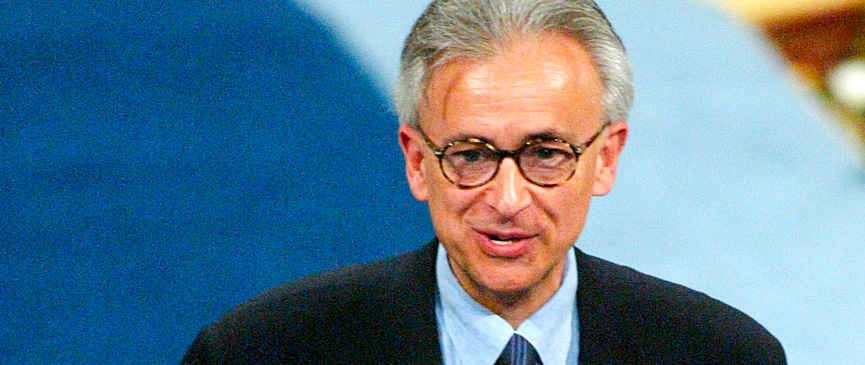Main content
Antonio Damasio Prince of Asturias Award for Technical & Scientific Research 2005

Antonio Damasio (Lisbon, Portugal, 1944 - ) qualified as a doctor in Medicine at his native city´s university in 1974. After a period at the Aphasia Research Center, in Boston, he returned to the same Department of Neurology at Lisbon´s University Hospital where he had completed his residency years earlier. He is a professor at the University of Southern California and director of the Institute for Neurological Study of Emotion, Decision-Making and Creativity. He was a distinguished lecturer and head of the University of Iowa´s Department of Neurology, where he held the M.W. Van Allen professorship, and is also a lecturer at the Salk Institute, La Jolla, California.
His work has focused on research into the decisive problems of the basic neuroscience of the mind and of behaviour, as well as on illnesses such as Parkinson´s and Alzheimer´s disease. His contributions have had a major influence on our understanding of the neural bases of decision-making, emotions, language and memory. Alongside his wife, Hanna Damasio, he has set up a laboratory at the University of Iowa for research into perception using both the lesion method and functional imaging. Besides his many research papers published in scientific reviews, Damasio has written such books as "Descartes´ Error: Emotion, Reason and the Human Brain" (1994), "the Feeling of What Happens: Body and Emotion in the Making of Consciousness" (1999), which was chosen as one of the ten best books of 2001 by the New York Times Book Review, "Looking for Spinoza: Joy, Sorrow and the Feeling Brain" (2003), which has been translated into French, German, Italian, Dutch and Swedish, "The person within: the mental self" (2003) and Self Comes to Mind: Constructing the Conscious Brain (2010).
He is a member of the Institute of Medicine of the U.S. National Academy of Sciences, of the American Academy of Arts and Sciences, and also of the European Academy of Arts and Sciences and of Belgium´s Royal Academy of Medicine. He is a knight of Portugal´s Order of Santiago da Espada, and the American Medical Association´s William Beaumont Prize (1990), the Pessoa Prize (1992), the Golden Brain Award (1995) the Ipsen Foundation´s Award in Neuronal Plasticity (1997), Finland´s Reenpaa Prize in Neuroscience (2000), the Arnold Pfeffer Prize and the Medal for Scientific Merit from the Centro Reina Sofia for the study of violence all figure amongst his accolades, the Nonino Prize (2003) and the Signoret Prize (2004).
End of main content
